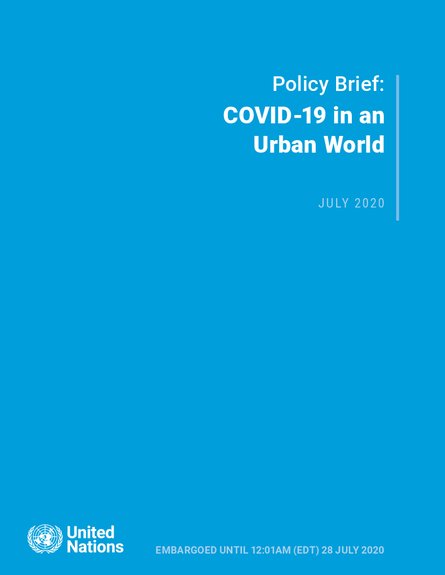
The remarkable growth of cities in recent decades has intensified many of humanity’s most pressing challenges. It has also presented many of our greatest opportunities to protect people, prosperity and planet. COVID-19 has laid bare – and indeed heightened – both these challenges and these opportunities. With an estimated 90 percent of all reported COVID-19 cases,1 urban areas have become the epicentre of the pandemic.
Addressing COVID-19 in an increasingly urbanized world requires a focus on how urbanization shapes impacts, responses and longer-term recovery. Responses that are siloed or shortsighted, focusing on quick fixes, could worsen and entrench impacts laid bare by the COVID-19 pandemic. Long-term policy choices by national, regional and local governments are needed to build our resilience against future pandemics, including climatic and economic hazards and shocks, while safeguarding human rights, sustaining peace and strengthening our ability to achieve the Sustainable Development Goals (SDGs). Meanwhile, many of the short-term measures to respond to COVID-19 will need to be maintained for some time, even when the initial outbreak appears to have been contained, given the risk of secondary waves of infections.
Links
Resource collections
- COVID-19 Response Collection
- Learning from crises
- Locally led humanitarian action
- UN Habitat - Urban Response Collection
- Urban Response - Urban Crisis Preparedness and Risk Reduction
- Urban Response Collection - Community Engagement and Social Cohesion
- Urban Response Collection - Economic Recovery
- Urban Response Collection - Environment and Climate Change
- Urban Response Collection - Housing, Land and Property
- Urban Response Collection - Urban Crisis Response, Recovery and Reconstruction
- Urban Response Collection - Urban Resilience